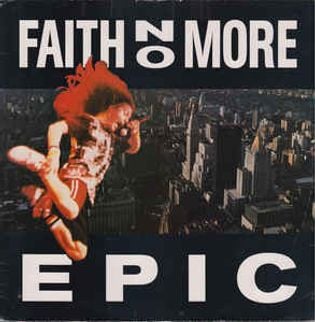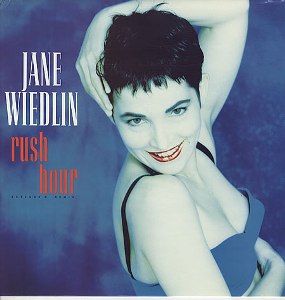 “Blister in the Sun” doesn’t sound like it was meant to be a hit. It’s too strange, too raw, too nakedly awkward. The acoustic guitar is scratchy and off-kilter, the drums feel like they were borrowed from a high school marching band, and the lyrics teeter between adolescent horniness and spiritual confession. But that’s exactly why the song still burns like a spark after four decades. It wasn’t meant to be a hit. It was meant to be a scream from the bathroom mirror, a punk prayer shouted from the rooftops by kids who don’t belong anywhere but refuse to disappear. When the Violent Femmes recorded “Blister in the Sun” in 1982, they were broke, unsigned, and unsure. What they created instead was a song that has since become the ultimate anthem for the weird, the restless, and the emotionally unfiltered.
“Blister in the Sun” doesn’t sound like it was meant to be a hit. It’s too strange, too raw, too nakedly awkward. The acoustic guitar is scratchy and off-kilter, the drums feel like they were borrowed from a high school marching band, and the lyrics teeter between adolescent horniness and spiritual confession. But that’s exactly why the song still burns like a spark after four decades. It wasn’t meant to be a hit. It was meant to be a scream from the bathroom mirror, a punk prayer shouted from the rooftops by kids who don’t belong anywhere but refuse to disappear. When the Violent Femmes recorded “Blister in the Sun” in 1982, they were broke, unsigned, and unsure. What they created instead was a song that has since become the ultimate anthem for the weird, the restless, and the emotionally unfiltered.
The Violent Femmes were a Wisconsin anomaly, a band born out of the awkward Midwest rather than the punk capitals of New York or London. Their lineup—Gordon Gano on vocals and guitar, Brian Ritchie on acoustic bass, and Victor DeLorenzo on a minimalist drum kit made from a snare, a tom, and a steel bushel basket—wasn’t typical of the punk scene. They didn’t wear leather jackets or chase three-chord speed for its own sake. They played acoustic instruments like folk musicians, but they spit venom and sarcasm like punks. They were less about volume and distortion and more about emotional volume: feelings turned all the way up, restraint thrown out the window. Their music was fragile, intense, and deeply uncomfortable—and “Blister in the Sun” captured that aesthetic perfectly.
Gano wrote the song when he was still in high school, a scrawny kid scribbling lyrics that straddled the line between innocent longing and unhinged oversharing. “When I’m a-walkin’ / I strut my stuff / And I’m so strung out,” the song begins, and immediately there’s a contradiction: pride tangled with dysfunction, ego colliding with vulnerability. The rhythm is jerky, almost tribal. Ritchie’s bass line walks in tight circles while DeLorenzo’s percussion clatters like bones in a drawer. Gano’s guitar is more rhythm than harmony—he slashes at the strings with barely-contained fury. His voice is unmistakable: nasal, trembling, twitchy with teenage energy. He sounds like a boy trying to sound like a man and failing, but beautifully so.
Lyrically, “Blister in the Sun” has been misunderstood and reinterpreted a thousand times. Some say it’s about drugs, others say it’s about masturbation, others think it’s about mental illness. The truth, as Gano has coyly hinted over the years, is somewhere in the blurry middle. The lyrics don’t form a narrative so much as they express a mood—a raw and restless kind of self-destructive euphoria. “Body and beats / I stain my sheets / I don’t even know why,” Gano sings, and it’s both pathetic and powerful. The line isn’t there to titillate. It’s there to reveal, to show how adolescent desire is often tied to shame and confusion. The song doesn’t celebrate lust so much as expose its absurdity.
What makes “Blister in the Sun” so iconic is its audacity to be so personal, so strange, and so non-commercial—and yet, paradoxically, so catchy. The guitar riff is instantly recognizable: just a few muted downstrokes followed by a loose string ring-out, but it sticks in your brain like a nervous tic. You can hear the entire thing in the spaces between the notes. The song doesn’t need studio magic, backing vocals, or polish. It thrives on imperfection. It practically dares you to laugh at it, and then it hooks you before you can.
The original recording was part of the Violent Femmes’ self-titled debut album, released in 1983. That record, like the song, was recorded cheaply and quickly, mostly in a warehouse. It didn’t make much of a commercial splash at first, but it grew over time—passed from teenager to teenager, whispered about in dorm rooms, memorized in bedrooms. “Blister in the Sun” wasn’t released as a formal single. It didn’t need to be. It became a grassroots phenomenon, a punk folk hymn that transcended radio. By the late ‘80s, it was a cult classic. By the ‘90s, it was a generational touchstone.
Then came the film placements. The song appeared in multiple movies and TV shows, perhaps most famously in the 1997 romantic comedy Grosse Pointe Blank starring John Cusack. That reintroduced it to a whole new generation. Suddenly, “Blister in the Sun” was everywhere—playing in commercials, heard on the radio, and blasting from car stereos. The band even recorded a new version for the movie, dubbed “Blister 2000,” which was slicker, fuller, and a little too clean. But the original remained untouchable. That lo-fi, twitchy energy couldn’t be replicated. It wasn’t just the notes or the voice—it was the feel. You can’t manufacture a song that sounds like it’s about to fall apart at any moment and yet somehow holds together.
The Violent Femmes weren’t a conventional band, and their career trajectory followed suit. After their debut album, they struggled to match the strange perfection of their early songs. Critics were often puzzled by their refusal to evolve in any expected direction. They veered into Christian themes, jazz experiments, and even country twang, and they frequently feuded—especially Gano and Ritchie, whose creative and legal battles would span decades. But “Blister in the Sun” remained their indelible fingerprint. Every time they played it live, the crowd exploded. It was the one song they could never leave off the setlist.
Part of its enduring appeal lies in its universality. It’s not just about being young—it feels young. It feels like the inside of your head when you’re sixteen and horny and anxious and trying to figure out if you’re cool or a complete freak. The song gives permission to be awkward, to be unsure, to not have the answers. It doesn’t romanticize youth—it captures its absurdity. “Blister in the Sun” is what you hear when you walk down a hot sidewalk in sneakers you hate, wearing a shirt that makes you sweat, headed to a party where you know no one wants to talk to you. But still you go. Still you walk. Still you strut your stuff. Because that’s all you’ve got.
It also helped pioneer a sound that’s now so ubiquitous we forget how radical it once was. Long before MTV Unplugged and coffeehouse rock, the Violent Femmes were proving that acoustic instruments could be punk. That folk could be confrontational. That you didn’t need distortion to be loud. Their influence is everywhere—in the raw strumming of early Nirvana, in the awkward honesty of Beck, in the confessional scream of Conor Oberst. You can draw a line from “Blister in the Sun” to every indie band that made you cry in a basement club.
And then there’s the way it still makes people move. At parties, bars, weddings, or dorm rooms, that opening guitar lick causes spontaneous eruptions. People leap up, shout along, and dance like no one’s watching—because the song gives them permission to lose control. It’s not a dance track in any traditional sense, but it invites unfiltered expression. No choreographed moves. No smooth grooves. Just elbows, knees, and laughter.
Gordon Gano has always seemed a little embarrassed by the song’s notoriety. In interviews, he’s expressed pride but also a hint of regret. He was, after all, just a kid when he wrote it. But that’s precisely why it resonates. It wasn’t written by a committee or engineered in a lab. It was scratched out by a teenager trying to make sense of his own weird body and brain. That purity of expression, that total lack of pretense, is what makes it immortal.
If you try to pin “Blister in the Sun” to one meaning or one era, it slips away. It’s punk, but it’s not angry. It’s folk, but it’s not peaceful. It’s indie, but it’s too shameless. It exists in its own category—a musical outsider art piece that snuck into the canon by sheer force of character. It’s the song equivalent of a kid with ripped jeans and a bloody nose, grinning at the camera because he knows he won.
Today, you can still hear it anywhere from retro playlists to punk nights to karaoke bars. And each time, it sounds just as jittery, just as nervy, just as unpredictable. It hasn’t grown up. It hasn’t mellowed. It remains the same weird little song that refuses to behave. That’s its power. It doesn’t apologize. It doesn’t explain. It just kicks the door open, looks you in the eye, and shouts “Let me go on!” like it means everything.
And somehow, every time you hear it, it still does.


